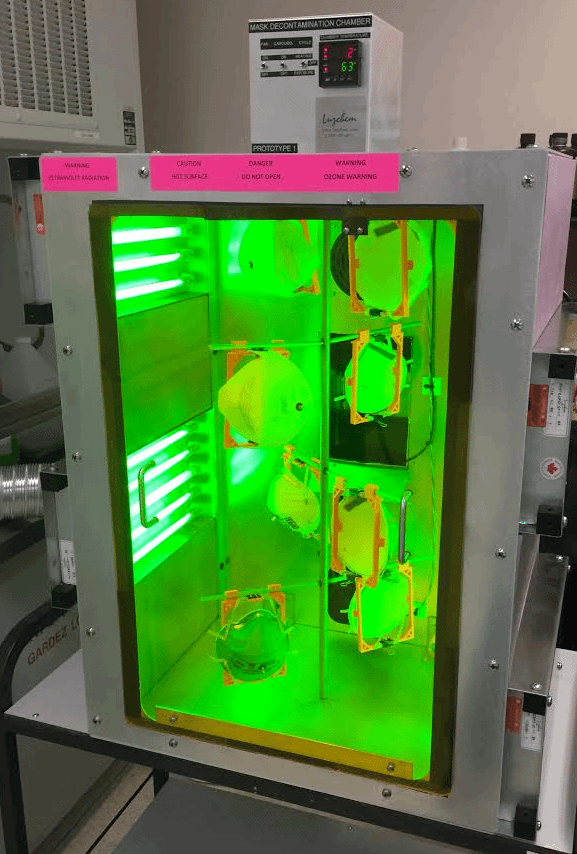N95 surgical face masks are an example of personal protective equipment used to protect frontline healthcare workers from the spread of COVID-19. The need for the masks has soared recently, and companies around the world are ramping up their production efforts to meet the growing demand. For these companies, and for scientists on all continents, it’s a race against time to control the disease.
Scientists at the University of Ottawa Heart Institute (UOHI), working in partnership with teams at Luzchem Research Inc., and with advice from Professor Tito Scaiano in the Faculty of Science at the University of Ottawa, are “shining light” (both figuratively and literally) on the problem.
Dr. Emilio Alarcon is an assistant professor in the Department of Biochemistry, Microbiology and Immunology at the University of Ottawa and a scientist in the Division of Cardiac Surgery and Bio-Engineering and Therapeutic Solutions (BEaTS) Laboratory at the UOHI. Alarcon and a multidisciplinary team, including an energetic group of trainees, are developing a process that combines temperature and light to effectively “clean” used (and potentially contaminated) masks. The project is funded by an NSERC Alliance COVID-19 grant, established by the Natural Sciences and Engineering Research Council to leverage the expertise of Canadian researchers and their partners to address the unprecedented coronavirus crisis.
“It’s a contained system, almost like a tanning bed,” says Dr. Alarcon. “After use, the contaminated masks are treated in a custom chamber, where they are exposed to a photothermal treatment that safely removes any harmful microbes on the mask that could cause an infection.”
Dr. Alarcon says the technology could soon enable healthcare workers across the country to reuse their mask a second or even a third time without compromising their health and safety – or that of the patient for which they are providing care.
“We are essentially working to double, even triple the number of masks available to the Canadian healthcare system,” says Dr. Alarcon. “This technology could be expanded to the decontamination and reuse of other PPE such as surgical masks and face shields.”
“This is a fragile time for science,” he adds. “It’s easy and natural to feel frustrated in these uncertain times. For those who can, there is a calling – a duty we share as scientists – to push ourselves, to challenge our concept of what is possible. This is what it means to me to be a scientist.”

